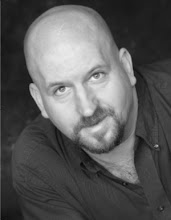Love and Fear
There are two archetypal emotions - Love and Fear. This is not a new concept. I first ran across it reading Neal Donald Walsch's Conversations with God. As I read about this idea, I was struck by the similarity between this idea and the part of the Michael Chekhov Technique dealing with expansion and contraction. I saw clearly that Love was expansion and Fear was contraction. Since that time, I have seen the idea that Love and Fear are the only two true emotions in several places.
But where did emotions such as anger, grief, joy, resentment, sadness fit?
As I pondered this question, I saw that rather than being on the same level as Love and Fear - the other "emotions" were more like subsets. Love and Fear were the archetypes from which all other emotions came. To discover which archetype an emotion fell under, all one had to do was check in with themselves with the question, "does this make me feel expansive or contractive?" If the emotional state created a sense of expansion, it fell under the archetype of Love. If the emotional state created a sense of contraction, it fell under the archetype of Fear.
The one "emotion" I couldn't reconcile with this theory was anger.
Was anger a subset of fear? When I felt angry, there was a certain sense of drawing within. But when I expressed my anger there was more of an outward movement. But could anger really be a subset of Love? that didn't seem to make sense. Then I had the thought: What if anger isn't really an emotion? I mean, the only reason I assumed it was an emotion was because everyone said it was. But what if it wasn't?
Then I remembered when I was getting counseling for ADHD (and depression, although I wasn't willing to admit that I was depressed at the time). During one of my counseling sessions I saw that when I got angry at something, there was a split second that something else was there - intense sadness. Anger seemed to be my way of avoiding the sadness I was feeling.
So maybe anger wasn't an emotion, but a physical or energetic means of avoiding whatever feeling is really there.
A recent example:
Sunday morning my wife and I had a fight. The details are unimportant, but the basic gist was that I said something and she thought I was saying something negative about her. She got angry. And then I got angry. She was angry that I would think something negative about her. I got angry because I think it's clear that I hold her in high regard and so why would she think that I would say anything negative about her.
Breaking it down later, I could see that before she got angry, she got hurt. And before I got angry, I got hurt. And rather than experience those hurt feelings, we used anger to deflect and avoid.
I have tried out this theory over and over with people and have never found a case where anger didn't come as a response to a feeling of hurt or loss or sadness. All subsets of the archetypal emotion - Fear. I invite you to try it out yourself.
To be continued....

